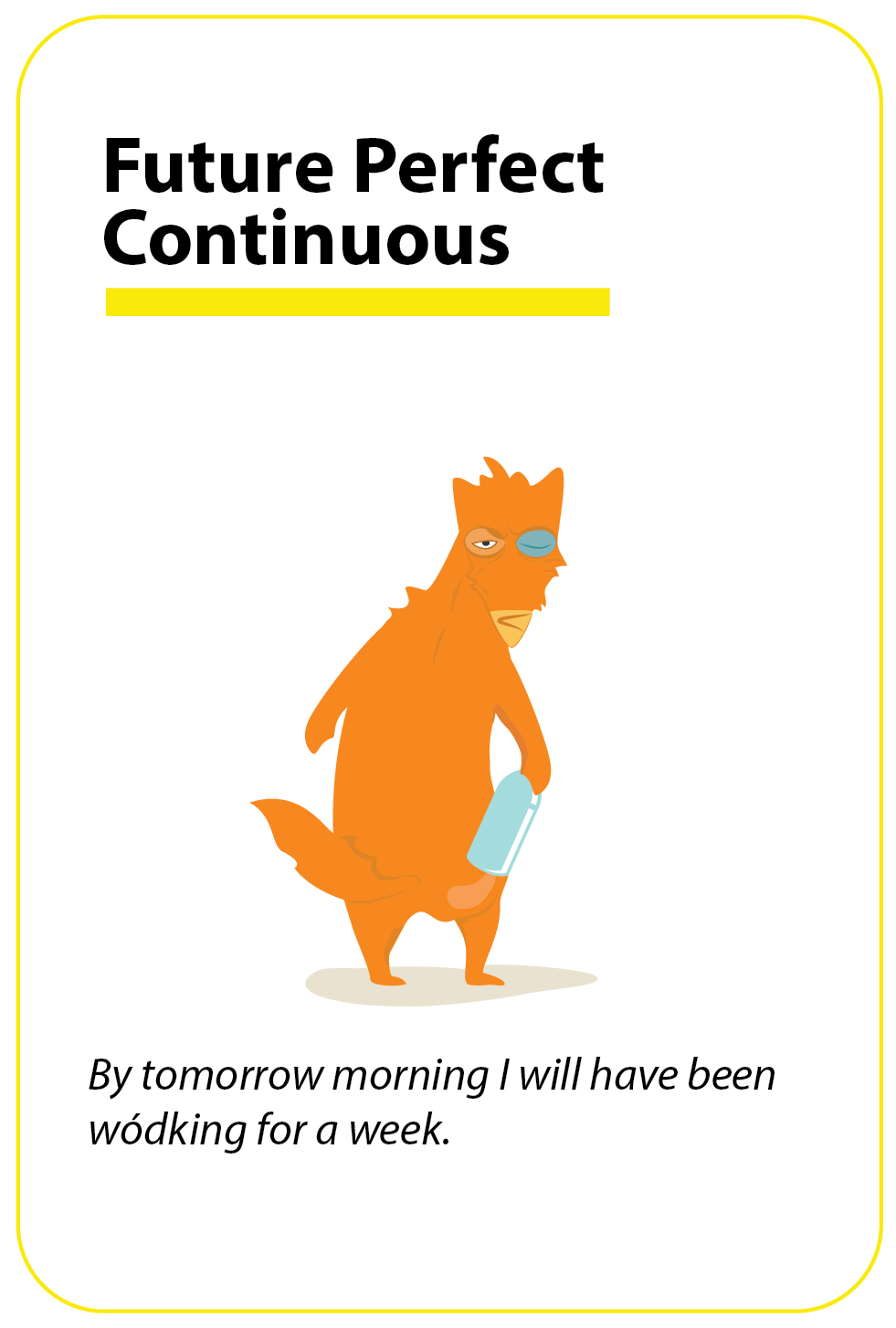Jeśli regularnie się uczysz, w końcu przychodzi ten długo wyczekiwany moment, kiedy prawidłowe zastosowanie Past Perfect czy odróżnienie Present Perfect od Past Simple nie stanowi dla Ciebie problemu. Czytaj uważnie, bo lis bardzo się postarał.
To wódka – pić wódkę (nie sprawdzaj w słowniku, po prostu nam zaufaj).
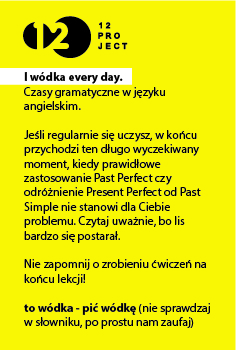
Here are Fox’s confessions in all 12 tenses.
Present Simple
I wódka every day. – Piję wódkę codziennie.
Subject + V(-s, -es) / Do (does).
-
Affirmative: I wódka every day.
-
Negative: I don't wódka every day.
-
Interrogative: Do I wódka every day?
Time markers: every day/ week / month / year, always, usually, often, sometimes, never.
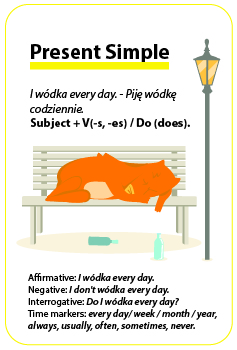
Present Continuous
I am wódking now. – Piję wódkę teraz.
Subject + to be (am / is / are) V(-ing).
-
Affirmative: I'm wódking now.
-
Negative: I am not wódking now.
-
Interrogative: Am I wódking now?
Time markers: now, at the moment.
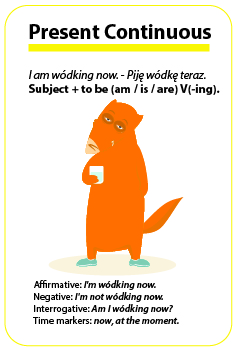
Present Perfect
I have already wódked. – Już piłem wódkę.
Subject + have / has V(-ed, III).
-
Affirmative: I have already wódked.
-
Negative: I have not wódked yet.
-
Interrogative: Have I wódked yet?
Time markers: ever, never, just, already, yet, lately, recently.
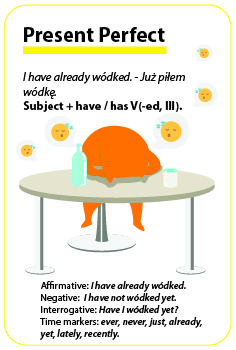
Present Perfect Continuous
I have been wódking since childhood. – Piję wódkę od dzieciństwa.
Subject + have / has been V(-ing).
-
Affirmative: I have been wódking for a week.
-
Negative: I have not been wódking for a week.
-
Interrogative: Have I been wódking for a week?
Time markers: for, since.
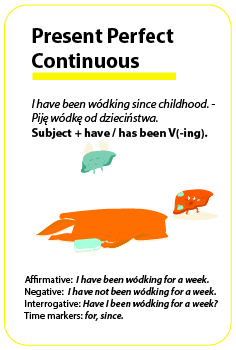
Past Simple
I wódked yesterday. – Piłem wódkę wczoraj.
Subject + V(-ed, II) / Did.
-
Affirmative: I wódked yesterday.
-
Negative: I didn't wódka yesterday.
-
Interrogative: Did I wódka yesterday?
Time markers: yesterday, last week, in 2015.
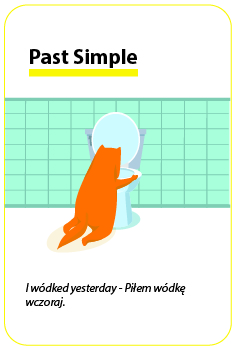
Past Continuous
I was wódking at the moment my wife came. – Piłem wódkę w momencie kiedy przyszła moja żona.
Subject + to be (was / were) + V(-ing).
-
Affirmative: I was wódking at the moment my wife came.
-
Negative: I was not wódking at the moment my wife came.
-
Interrogative: Was I wódking at the moment my wife came?
Time markers: when, while, at ... o'clock yesterday.
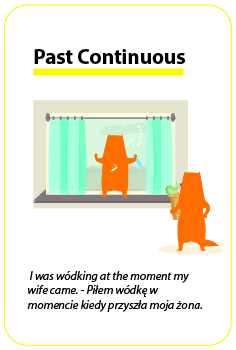
Past Perfect
I had already wódked when my wife came. – Kiedy przyszła moja żona, już wypiłem wódkę.
Subject + have / has been V(-ing).
-
Affirmative: I had already wódked when my wife came.
-
Negative: I had not wódked when my wife came.
-
Interrogative: Had I wódked when my wife came?
Time markers: by, just, when, already.
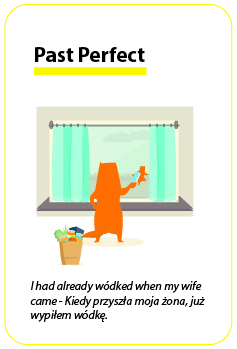
Past Perfect Continuous
I have been wódking for about a month when my wife came. – Piłem wódkę przez około miesiąc kiedy/zanim przyszła moja żona.
Subject + had been V(-ing).
-
Affirmative: I had been wódking for about a month when my wife came.
-
Negative: I had not been wódking for about a month when my wife came.
-
Interrogative: Had I been wódking for about a month when my wife came?
Time markers: when, for.
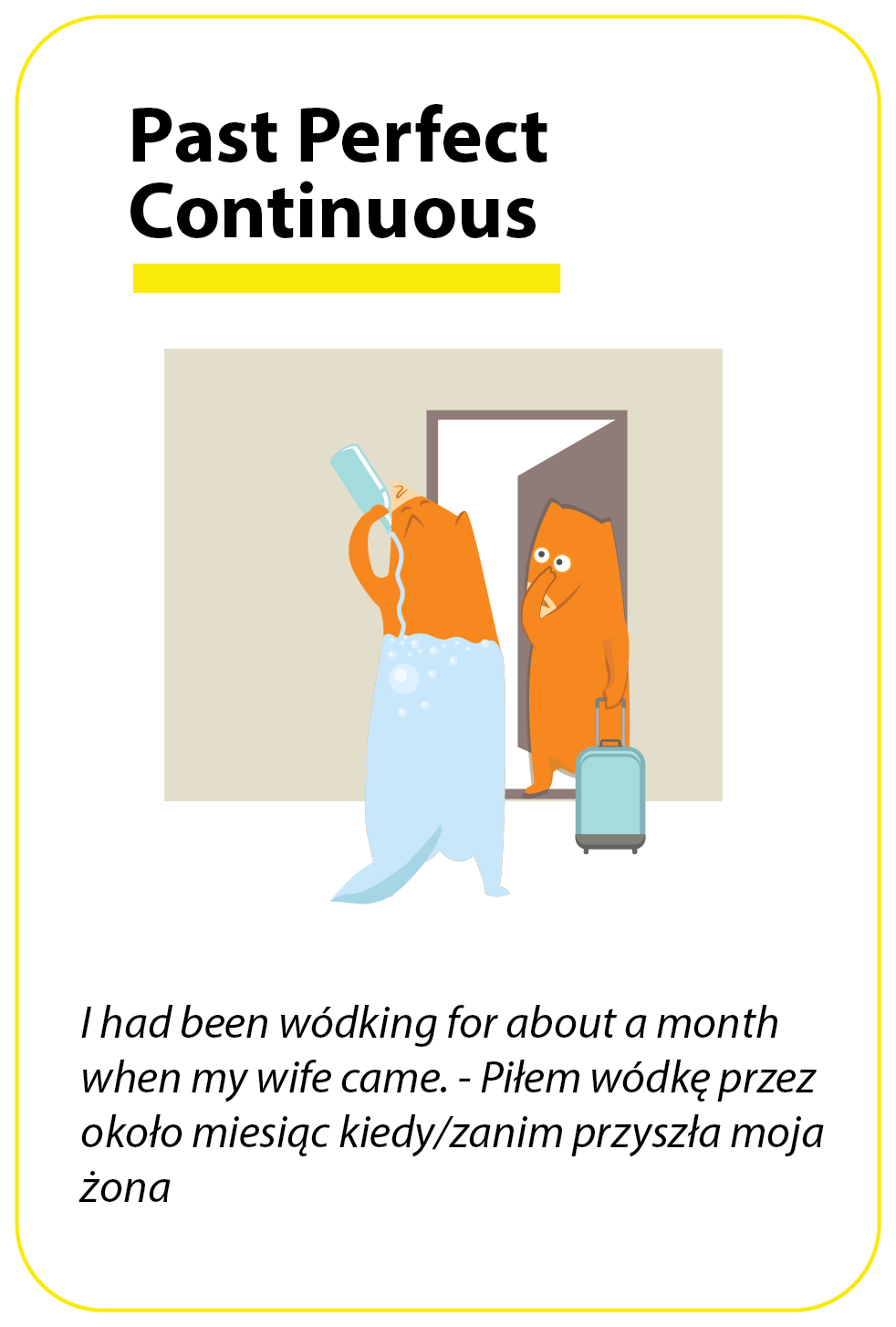
Future Simple
I will wódka tomorrow. – Jutro będę pić wódkę.
Subject + will + V.
-
Affirmative: I will wódka tomorrow.
-
Negative: I will not wódka tomorrow.
-
Interrogative: Will I wódka tomorrow?
Time markers: tomorrow, next week / year, in a week.

Future Continuous
I will be wódking tomorrow at 5. – Jutro o 5 będę pić wódkę.
Subject + will be V(-ing).
-
Affirmative: I will be wódking tomorrow at 5.
-
Negative: I will not be wódking tomorrow at 5.
-
Interrogative: Will I be wódking tomorrow at 5?
Time markers: at this moment, tomorrow, at this time.
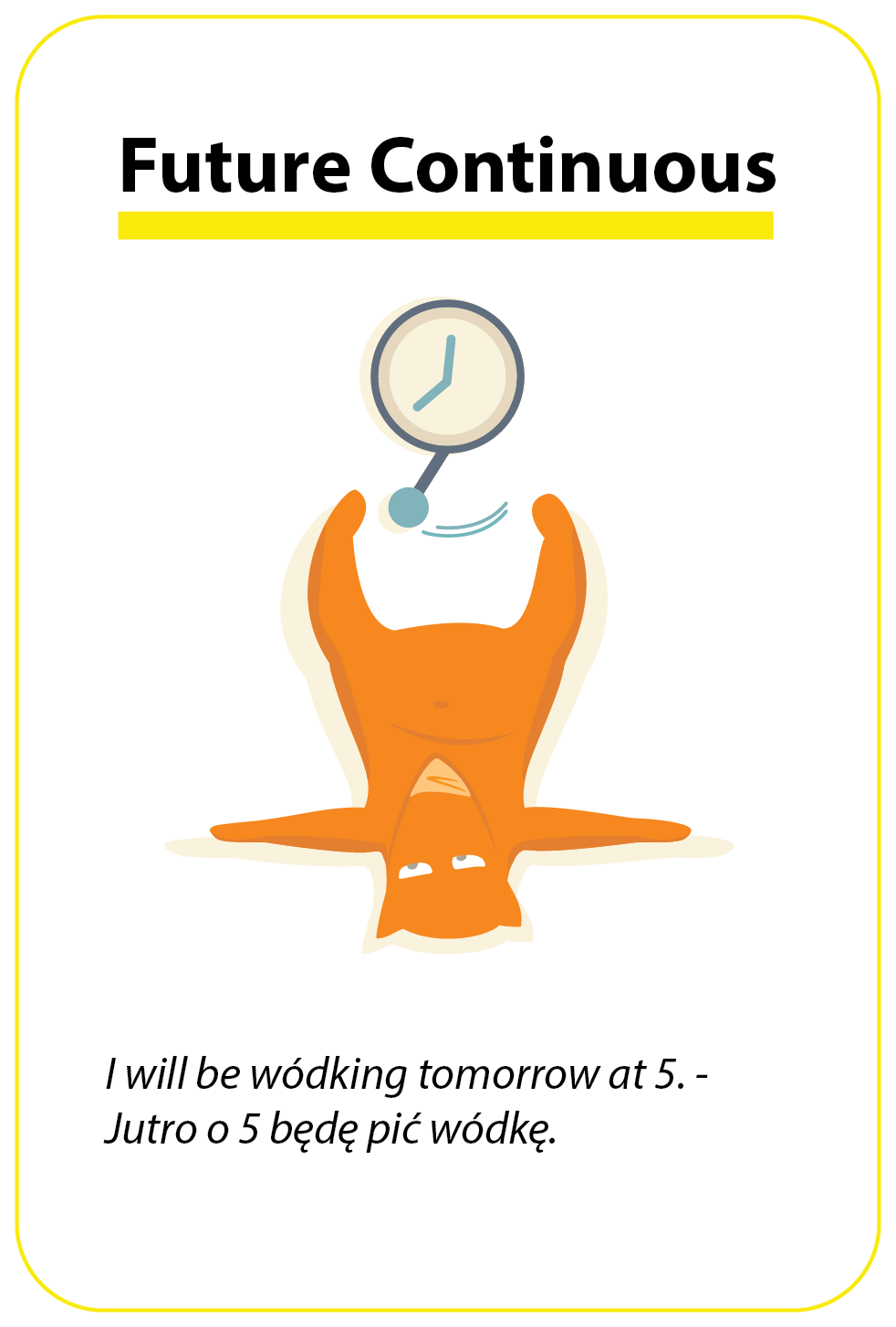
Future Perfect
Tomorrow by 5 o’clock I will have wódked. – Jutro o 5 już będę po wódce.
-
Subject + will + have V(-ed, III).
-
Affirmative: Tomorrow by 5 o’clock I will have wódked.
-
Negative: Tomorrow by 5 o’clock I will not have wódked.
-
Interrogative: Will I have wódked tomorrow by 5 o’clock?
Time markers: by.
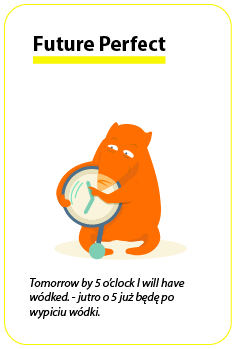
Future Perfect Continuous
By tomorrow morning I will have been wódking for a week. – Jutro rano będzie można powiedzieć, że piję wódkę od tygodnia.
Subject + will + have been V(-ing).
-
Affirmative: By tomorrow morning I will have been wódking for a week.
-
Negative: By tomorrow morning I will not have been wódking for a week.
-
Interrogative: Will I have been wódking for a week by tomorrow morning?
Time markers: by, when + for.
